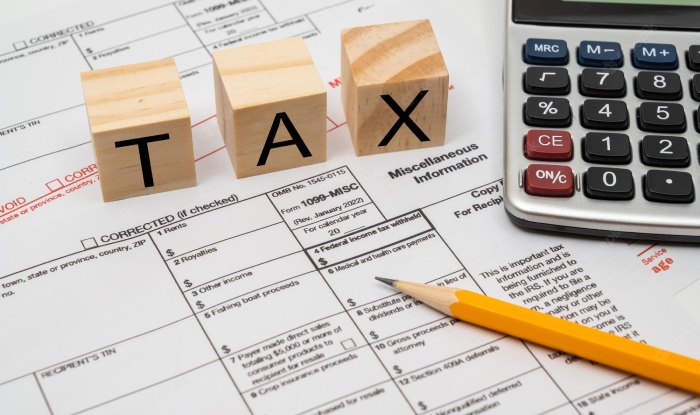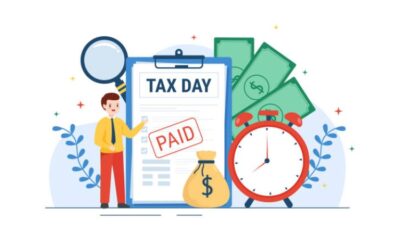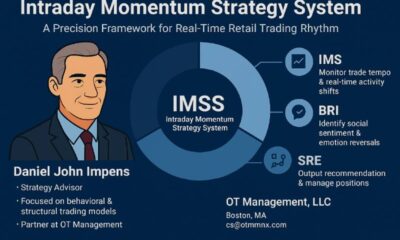Business
Things to be keep in mind before paying 1099 tax

When you work independently as a freelancer, solo entrepreneur, or contractor, it implies that you will receive payment as an independent contractor. According to the IRS, an independent contractor is defined as the individual responsible for working on a project for someone else while performing on it in one’s own ways. This implies that when someone will hire you for a specific task or a service, will have a final say in the outcomes -not in the process.
An independent contractor can be naturally not regarded as a full-time employee. Therefore, when you are an independent contractor, you will be paid in several ways. You can get paid in the business name or you pay yourself from the business. It indeed implies that you are self-employed. With dedicated self-employment, you are subject to a huge spectrum of responsibilities. The 1099 tax calculation can be done here very easily. Out of all these responsibilities, paying taxes is one of the major aspects to consider as an independent contractor.
When you understand specific guidelines for filing as well as paying taxes in the form of an independent contractor, it can help you in avoiding issues with the IRS in the long run. In this aspect, a professional financial advisor can help in optimizing your overall tax strategy for fulfilling your financial needs and goals.
Who is an Independent Contractor?
Independent contracting is used to signify individuals who offer their services to others -not as full-time employees. These services function primarily on the contract basis or on the freelance basis.
One of the core characteristics of an independent contractor is to retain control of the manner in which they function. With this guideline, there is a myriad of career options that serve the opportunity to function as an independent contractor, including:
- Writer
- Accountant
- Electrician
- Graphic designer
- Web developer
- Dentists
- Attorneys
- Hairstylists
- Physicians
- Lawncare professionals
The status of independent contractors can apply irrespective of the structuring of your business. You can be regarded as an independent contractor if you function as a sole proprietor, adopt a corporate structure, or create an LLC (Limited Liability Company). Until you are classified as a full-time employee, you can be regarded as an independent contractor.
When you hire people to do your work, you should decide whether you should classify them as employees or independent contractors. When you incorrectly classify them as an independent contractor, it could initiate some tax penalty. The IRS regards an individual to serve as the full-time employee if the individual paying them for work is capable of controlling what will be done by the employee and how it is will be executed.
Payment and Reporting Income of an Independent Contractor
Full-time employees are usually paid on a fixed schedule -like monthly, weekly, or bi-weekly. When you are working as an independent contractor, it depends on you & the payer to reach an agreement on how and when you will be paid and how the transaction is going to take place. For instance, the payer might think of mailing you a check, sending payments through an ACH deposit, or via wire transfers.
These payments cannot be regarded as wages or salaries for the purpose of taxation. It is because the vendor will not deduct taxes. This implies that there is the absence of Social Security taxes, federal income taxes, or Medicare taxes upon receiving the money.
As soon as the income tax season arrives, the payer is expected to send you the comprehensive Form 1099-MISC. The form reports the entire set of income paid by the payer during the previous year. To this rule, there is an exception. If you earn less than $600, then also you are expected to report the respective income. However, in this case, the payer will not send the Form 1099-MISC. When you work with multiple businesses or individuals throughout the year, you will receive multiple copies of the form. Payers are expected to have the copies postmarked or completed by the end of every year’s January.
How to Pay Taxes as an Independent Contractor?
For the purpose of taxation, the IRS regards independent contractors in the form of self-employed professionals. This implies that you will be subject to a different set of tax filing and payment rules than standard employees.
You will have to file a proper tax return in case your net earnings out of self-employment are $400 or even more. In addition to the Form 1040, you are expected to file the Schedule C to analyze the net loss or income for your business. You can also consider filing the Schedule C-EZ type of form in case you have an amount of $5,000 in the case of business expenses.
You will also ensure the payment of a proper amount of self-employment tax. It is responsible for covering the amount you owe for Medicare and Social Security taxes for the respective year. For instance, in 2021, the rate for self-employment tax was around 15.3 percent -the rate features 12.4 percent for social security tax like disability insurance, old age, and survivors, and 2.9 percent for Medicare tax. It is possible to calculate the self-employment tax with the help of Schedule SE upon Form 1040.
An additional rate of 0.9 percent of Medicare surtax also applies to the high-income earners since the time of 2013. Therefore, last year, the Medicare surtax was applied to single heads and filers of households having incomes exceeding $200,000. For married couples, the Medicare surtax applies to those filing jointly with income exceeding $250,000 and those filing separate with incomes exceeding $125,000.
As an independent contractor, you can expect owing $1,000 or even more in the form of taxes upon filing the annua return. In this case, you will have to ensure estimated payments for quarterly taxes. The regular payments will help in covering the self-employment tax along with the income tax liability for the given year. The first payment of quarterly tax for every tax year remains due in April. Subsequent payments remain due in June & September, and eventually January the next year.
If you fail estimating the quarterly taxes or end up underpaying them, it could lead to major tax penalties. The value of penalty would depend on the amount for which you are underpaid. Moreover, you are also expected to pay income tax along with estimated quarterly taxes at a state level as well.
What are Tax Deductions for Independent Contractors?
Tax deductions help in lowering the overall taxable income for the subsequent year. Independent contractors can claim them in the form of business expenses on the respective taxes. Based on the type of business you are running, the deductible expenses can include the following:
- Business insurance
- Advertising costs
- Home office expenses
- Legal expenses
- Vehicle-related expenses
- Equipment purchases
- Lease or rent payments
Independent contractors can also look forward to claiming the deduction for health insurance premiums they are paying out of their pockets. It would include premiums that are paid for dental, medical, and long-term medicare insurance. When you are paying the insurance of your spouse and children, you can claim for deductions for these expenses as well. The only exception here is that you cannot deduct the premiums for health insurance when you have access to the insurance plan of your spouse.
While serving as an independent contractor, it is also possible to deduct personal expenses -including interest paid for student loans, mortgage interests, real estate taxes, and so more. You can also avail the tax break when you contribute to the conventional IRA or self-employed retirement plan. If you are looking for the option of a retirement plan, you can consider the simplified solo 401(k) or SEP IRA. These plans will enable you ensure deductible contributions as qualified withdrawals are taxed at the standard income tax rate upon retirement.
Important Tax Tips for Independent Contractors
- Aim at working with a professional financial advisor to effectively manage the income as an independent contractor. As you come across online financial advisors having relevant expertise in the industry, you can interview the available advisor candidates to decide the right one for you.
- Develop an effective record-keeping system for your self-employed or freelancing business. Ensure that you have access to accurate records for both the expenses as well as income for the entire year. You can think of using a dedicated expense application to maintain a record of charitable donations, receipts, and other types of deductible expenses. Upon receiving the 1099 forms, ensure that you check for utmost accuracy.
- A financial advisor who will specialize in tax planning can offer help in lowering the 1099 income tax by leveraging your losses. This implies that you can use the investment losses towards reducing the taxes on the respective 1099 income.
Conclusion
Filing freelancing or self-employment taxes can appear complicated. However, with right help and guidance like an income tax calculator, you can easily master the art of understanding your 1099 taxes effectively.
-

 Sports4 weeks ago
Sports4 weeks agoFIFA Club World Cup 2025: Complete List of Qualified Teams and Groups
-

 Sports3 weeks ago
Sports3 weeks agoAl Ahly vs Inter Miami, 2025 FIFA Club World Cup – Preview, Prediction, Predicted Lineups and How to Watch
-
Health2 weeks ago
Back to Roots: Ayurveda Offers Natural Cure for Common Hair Woes
-

 Tech2 weeks ago
Tech2 weeks agoFrom Soil to Silicon: The Rise of Agriculture AI and Drone Innovations in 2025
-

 Sports3 weeks ago
Sports3 weeks agoFIVB Men’s Volleyball Nations League 2025: Full Schedule, Fixtures, Format, Teams, Pools and How to Watch
-

 Startup3 weeks ago
Startup3 weeks agoHow Instagram Is Driving Global Social Media Marketing Trends
-

 Television4 weeks ago
Television4 weeks agoTribeca Festival 2025: Date, Time, Lineups, Performances, Tickets and How to Watch
-

 Sports3 weeks ago
Sports3 weeks agoWorld Judo Championships 2025: Full Schedule, Date, Time, Key Athletes and How to Watch























